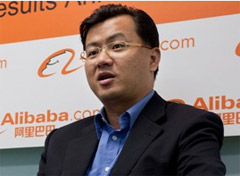 David Wei (Image courtesy of Alizila)
David Wei (Image courtesy of Alizila)
Alibaba.com announced several key company executives have stepped down after an internal investigation uncovered fraud on its business-to-business marketplace.
CEO David Wei and COO Elvis Lee resigned Monday, while human resources executive Kangming Deng has been demoted to a new post, according to Alibaba.com, which is the parent company of Auctiva.
At the same time, the company revealed findings that 2,326 Alibaba.com storefronts operated by China Gold Supplier members engaged in fraudulent sales during 2009 and 2010, and that about 100 Alibaba.com sales employees allowed the fraud to continue. China Gold Suppliers pay an annual fee to gain preferred status on the trading platform.
The investigation was launched last year after an employee tipped off executives to the wrongdoing.
In an e-mail to employees, Alibaba Group founder and CEO Jack Ma said that while Wei, Lee and Deng were not implicated in the fraud, they took responsibility for failing to uphold the company's core value of protecting the interests of customers.
"When we say 'customer first,' we mean that we'd rather sacrifice growth than do anything that would jeopardize our customers' interests, much less be a part of any blatant fraud," Ma said. "We may, from time to time, commit errors of judgment, but we will absolutely not err by compromising our principles."
Jonathan Lu, who runs Alibaba Group's Taobao site, replaces Wei as CEO. Lucy Peng replaces Deng as head of human resources. No replacement was announced for Lee.
Measuring the scope
The number of Alibaba.com vendors involved in the fraud scheme represented 1.1 percent and 0.8 percent of China Gold Supplier members in 2009 and 2010, respectively, with the average claim valued at about $1,200, according to company officials.
Alibaba.com is certainly not alone in grappling with fraud on its e-commerce marketplace. eBay famously battles its share of unscrupulous sellers, and spends millions of dollars annually to combat the problem of counterfeit merchandise on its sites, according to company executives.
A global counterfeit operation uncovered on eBay in 2009 was called the largest scam of its kind by investigators. Months earlier, eBay U.K. launched a campaign to fight counterfeiting in the electronics industry and changed its User Agreement to address the sale of fakes.
Craigslist and other online marketplaces have also experienced problems with fraud.
While these incidents shine a spotlight on the darkest aspects of e-commerce, they represent a small fraction of total online business. Globally, e-commerce transactions reached $10 trillion in 2010, according to an Information Technology and Innovation Foundation report.
A proactive stance
In the past year, Alibaba.com has stepped up efforts to eliminate fraud on its site. In the third quarter of 2010, the company terminated about 1,200 Gold Supplier members who were suspected of committing fraud. Last December, it took down 421 listings for counterfeit guitar strings after the fakes were discovered by the brand owner.
As it continually works to improve trust and safety for its users, Alibaba.com last year updated its dispute resolution process to be simpler and more transparent. And on Jan. 1, it raised the price of China Gold Supplier annual memberships by 50 percent, to $4,443, partly as a way to weed out scammers.
All storefronts suspected of fraud have been shut down and their operators turned over to law enforcement. The fees that were paid to set up the bogus storefronts will be forfeited and paid into Alibaba.com's Fair Play Fund. The special fund, which is made up of forfeited listing fees, was established in 2009 to help buyers recover some of their losses due to untrustworthy suppliers.

Auctiva staff writers constantly monitor trends and best practices of those selling on eBay and elsewhere online. They attend relevant training seminars and trade shows and regularly discuss the market with PowerSellers and other market experts.
Other Entries by this Author